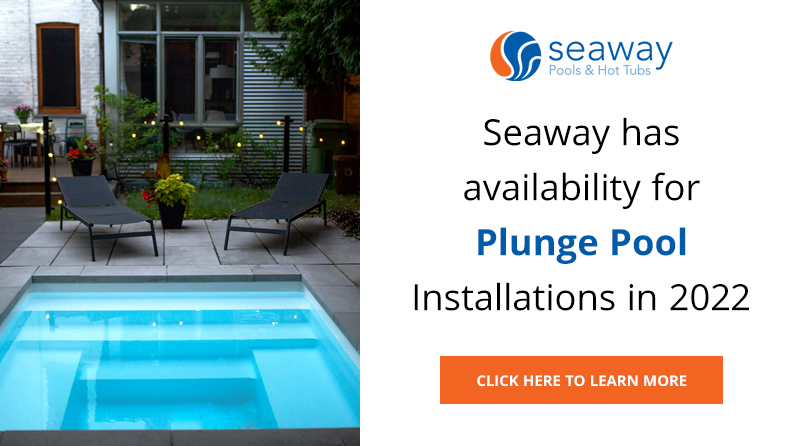Jun
2021
04
What You Need to Know About Caring For a Plunge Pool
Before installing a plunge pool, your first question is likely: what's the difference between a plunge pool and the average swimming pool. And the real answer is the size. Plunge pools are essentially just small backyard pools, but their reduced size naturally results in some difference in functionality. Plunge pools aren't typically used for swimming laps; instead, they are better for lounging, cooling down, and water aerobics. So how do these differences affect maintenance?
Debris
Before enjoying your plunge pool, be sure to remove any large debris floating around the water. Large items such as leaves, insects, dirt, or rocks can be removed using a pool net. Leaving debris in your pool allows dirt and bacteria to fester, which can cause an influx in dangerous bacteria like e-coli.
Skimming the water every day effectively removes contaminants before they can sink to the bottom of the pool or before they're captured within the pool's filtration system, which can protect the lifespan of your pool cartridges. Vacuuming twice weekly is another fast and efficient way to rid your pool of dirt and debris.
At Seaway Pools & Hot Tubs, we provide a wide selection of pool cleaning equipment on our online store that streamlines your pool care. You can shop online all summer long.
Brushing
Stop algae from growing in your plunge pool by brushing the walls daily. Start with dark, shady corners of the pool, as this is where algae and other build-up is usually the worst. Your first order of business is to brush algae and dirt off the walls of your pool. This will likely cause water to become cloudy, interfering with visibility because of the reduced pool size, so it's best to start in these spots that are more common for algae, then work your way to brighter, more open areas of the pool.
Water Chemistry
Test your water regularly. Water chemistry provides an essential overview of the health of your pool water and the functionality of your filtration system. If you notice that the water in your plunge pool is cloudy, you can use a test strip or an advanced smart pool testing system to assess your pool's pH and chemical concentration.
Extra Care
After parties, bad weather, or frequent use, your pool water may require additional treatment to stay healthy and hazard-free. Because plunge pools are small backyard pools, dirt and other contaminants can build up a little faster than the average pool, depending on how frequently it is being used. Keep an eye out for cloudy water, which is a common symptom of cosmetic or organic contamination. Use test strips to get a quick read on your water health.
Maintenance Benefits of a Plunge Pool
When you install a small swimming pool, the headache of maintenance shrinks too. You can spend less time, money, and energy caring for your pool and more time enjoying it instead. Because the surface area and volume of pools are significantly reduced, you won't need as many chemicals. Also, treatment won't take as long, making it less stressful, more cost-effective, and a lot easier overall to stay on top of all your swimming pool needs.

